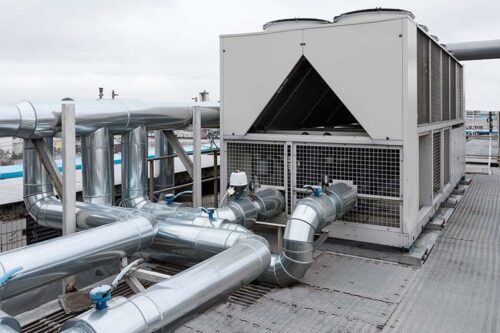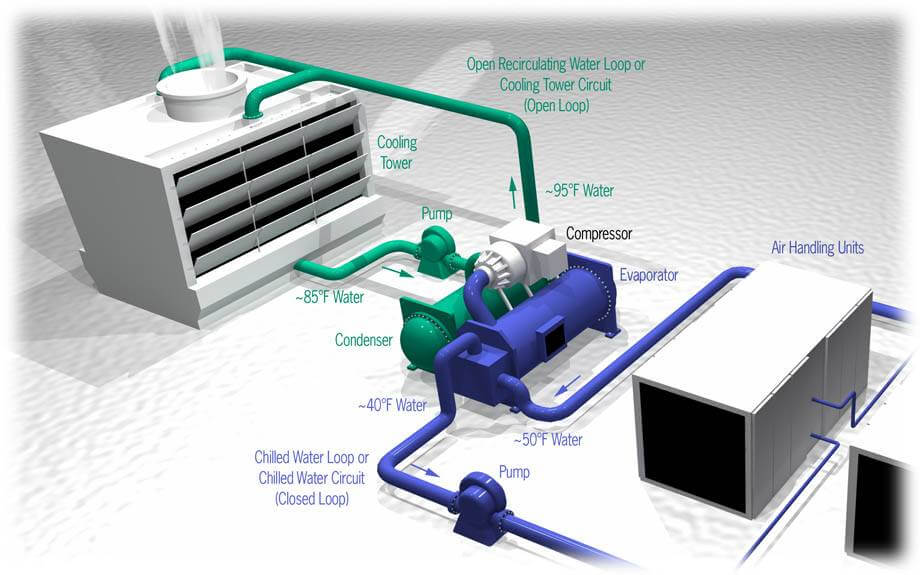Your Overview to Selecting the Right HVAC System for Your Requirements
Choosing an appropriate cooling and heating system is a crucial choice that can significantly impact comfort and power effectiveness in your house. Numerous aspects must be weighed, consisting of the dimension of your home, regional climate problems, and specific home heating or cooling down requirements. Additionally, understanding the different kinds of systems available and their energy rankings can assist lead your option. By reviewing these aspects very carefully, you can prevent typical risks. What key considerations should you prioritize to ensure your financial investment satisfies both prompt and lasting requirements?
Understanding A/c System Types
When selecting an a/c system, it is important to comprehend the numerous types readily available to meet your certain requirements. The key classifications of a/c systems include central air systems, ductless mini-split systems, warmth pumps, and heating system systems.
Central air conditioning systems are developed to cool numerous areas making use of ductwork to distribute conditioned air. They are perfect for larger homes requiring constant temperature control. Ductless mini-split systems, on the other hand, supply flexibility and efficiency, as they enable for zoning capacities, making it possible for specific area temperature policy without the demand for ductwork.
Heatpump operate by transferring warmth as opposed to generating it, making them an energy-efficient choice for both cooling and heating. They are especially efficient in moderate climates. Alternatively, heater systems utilize burning to generate warmth, making use of either electrical power, gas, or oil. They are favored in colder areas where home heating needs are substantial.
Each system has unique advantages and considerations, consisting of installment requirements, upkeep, and overall expenses. Comprehending these types will help home owners make informed choices based on their particular demands, environment, and spending plan restraints, eventually making certain optimal comfort and performance.
Examining Power Efficiency
Energy performance is a crucial variable in the selection of a Cooling and heating system, as it straight impacts both energy costs and environmental sustainability. The Seasonal Energy Performance Ratio (SEER) and the Heating Seasonal Efficiency Aspect (HSPF) are essential signs for air conditioning systems, representing their performance over a typical cooling and heating season, respectively.
Furthermore, search for systems that have earned the ENERGY STAR label. This certification represents that the tools meets stringent energy performance standards established by the united state Epa. Consider the system's variable-speed modern technology, which permits for more reliable procedure by changing the result to match demand, better enhancing power cost savings.
Additionally, correct insulation and air duct sealing can considerably affect the system's general performance. In summary, picking an energy-efficient heating and cooling system not just lowers your energy bills but likewise adds to a more lasting environment, making it a crucial factor to consider in your buying procedure.
Assessing System Size
Selecting the ideal size for an a/c system is important to making certain optimal efficiency and efficiency. A small system may struggle to preserve wanted temperature levels, causing increased damage, greater energy consumption, and lessened convenience. Conversely, an oversized system can lead to fast biking, which not just creates ineffectiveness yet likewise impacts moisture control and air high quality.
To analyze the excellent sizing, it is vital to conduct a tons computation, which thinks about aspects such as the square video footage of the area, insulation levels, home window dimensions, and local environment problems - furnace repair. This calculation helps figure out the British Thermal Units (BTU) needed for cooling and heating. Additionally, it is crucial to make up certain demands, such as the navigate here variety of residents and the visibility visit here of heat-generating appliances

Setup Costs and Budget
A comprehensive understanding of setup expenses is crucial for services and home owners considering a brand-new cooling and heating system. The overall expense of installation can differ widely based upon numerous elements, consisting of the type of system, the complexity of setup, and the place of the residential property. Typically, installment prices can range from $3,000 to $10,000, depending upon the system's dimension and effectiveness.
When budgeting for a HVAC system, it is crucial to consider not only the preliminary installation prices however additionally any type of additional expenses that may emerge, such as ductwork adjustments, electrical upgrades, or licenses. Additionally, it is recommended to acquire numerous quotes from licensed heating and cooling specialists to guarantee affordable prices.
Homeowners must additionally consider the potential long-lasting cost savings connected with energy-efficient systems. While the upfront prices may be higher, energy-efficient versions can lead to considerable cost savings on utility bills over time.

Maintenance and Durability Considerations

Proper maintenance consists of regular inspections, filter substitutes, and cleansing of ducts and coils (furnace installation). Overlooking these jobs can bring about reduced performance, boosted energy expenses, and premature system failing. Homeowners should likewise take into consideration the availability of service contracts, which often offer scheduled maintenance and top priority solution, making sure that the system remains in peak condition
Durability varies by system type; as an example, well-kept main air conditioning systems can last 15 to twenty years, while heatpump may Website have a life expectancy of 10 to 15 years. Selecting a system with a solid track record for reliability, together with spending in regular maintenance, can dramatically boost the system's resilience. Furthermore, deciding for higher-efficiency versions might bring about long-term savings on power bills, balancing the first financial investment in time.
Conclusion
To conclude, choosing a suitable HVAC system demands careful consideration of various elements, including system kinds, energy effectiveness, and size. Reviewing installation expenses and lasting upkeep demands is necessary for ensuring ideal efficiency and cost-effectiveness. Engaging with cooling and heating professionals can give useful understandings and customized recommendations that straighten with specific heating and cooling down needs. Eventually, a well-informed choice will boost convenience and effectiveness in property settings while making the most of energy savings.
Picking a proper Cooling and heating system is a vital choice that can substantially affect convenience and power efficiency in your home.Energy effectiveness is an essential aspect in the choice of an A/c system, as it straight affects both energy expenses and ecological sustainability. The Seasonal Energy Performance Proportion (SEER) and the Home Heating Seasonal Efficiency Aspect (HSPF) are crucial signs for air conditioning systems, representing their efficiency over a normal air conditioning and home heating period, specifically. Picking a system with a solid reputation for integrity, along with investing in routine maintenance, can considerably improve the system's sturdiness.In conclusion, picking a suitable Cooling and heating system demands cautious factor to consider of numerous elements, including system kinds, energy effectiveness, and size.